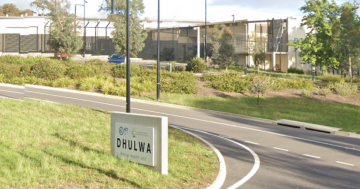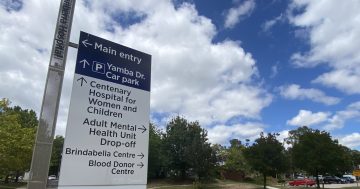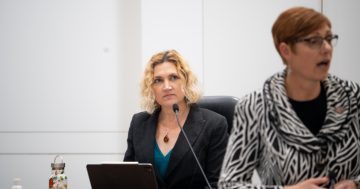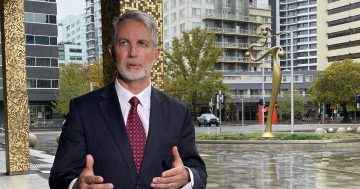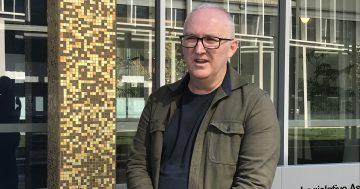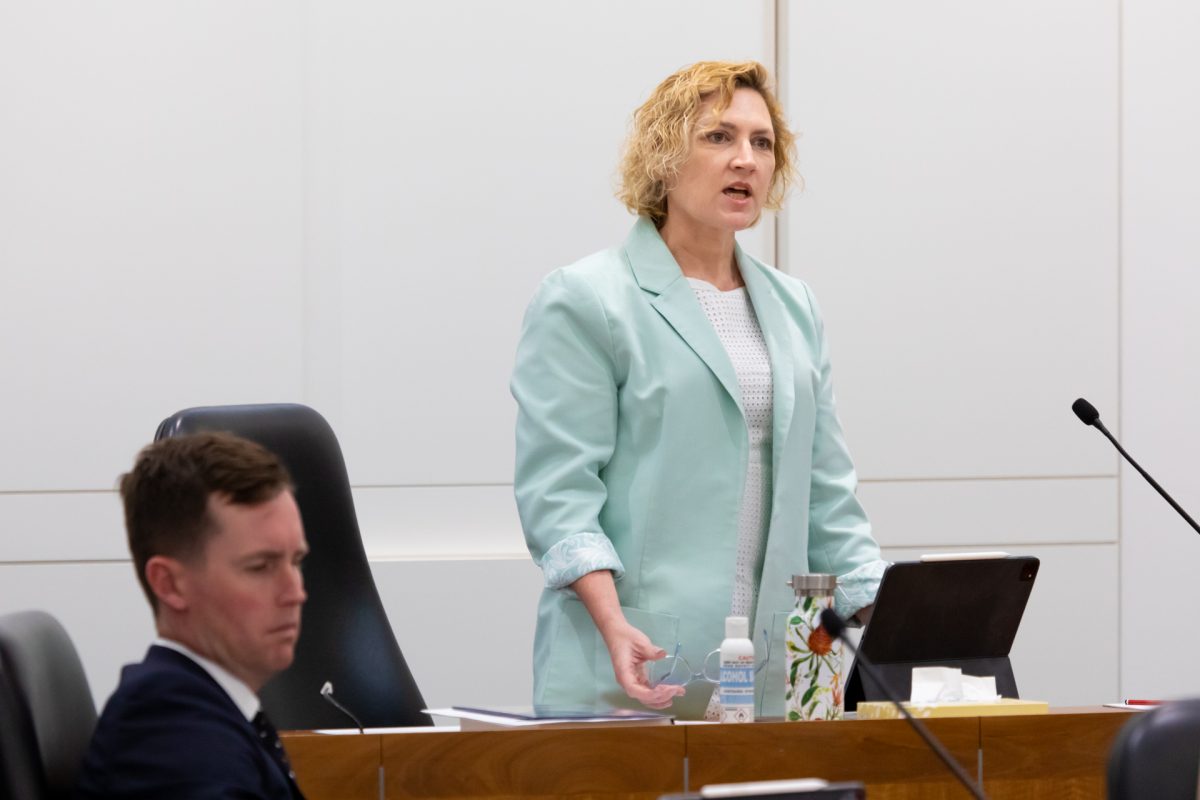
Mental Health Minister Emma Davidson: “In the vast majority of cases, it is not an issue, and people are contacted and will return from leave.” Photo: Michelle Kroll.
Mental Health Minister Emma Davidson has insisted that the leave system at Canberra’s secure mental health units is working well despite revelations that patients have been absconding and, according to staff, returning to the Dhulwa unit in Symonston under the influence of drugs or alcohol.
Ms Davidson came under sustained questioning in the Legislative Assembly today from three Opposition frontbenchers.
Canberra Health Services (CHS) has confirmed that 31 patients absconded from ACT mental-health facilities over the past year and, in most cases, did not return from approved leave at an appointed time.
Health spokesperson Leanne Castley quizzed the Minister on how patients were managing to abscond, why she didn’t know about it and if any were currently missing.
Ms Davidson said she was unaware of any patients who were not accounted for and played down the numbers involved.
She said most patients were on leave as part of their transition and recovery, visiting friends and family or attending appointments or education programs.
“In only 2 per cent of cases do inpatients actually abscond,” she said.
“It is a very small number of people we’re talking about here and it is not something that is happening in the kind of numbers the member is trying to make it sound like.
“In the vast majority of cases, it is not an issue, and people are contacted and will return from leave.”
Opposition Leader Elizabeth Lee asked what the Minister would say to family members of patients who abscond and take illicit drugs and what measures were in place to prevent patients accessing illicit drugs.
Ms Davidson said patients had complex needs, including alcohol and drug issues, and that was not unique to Canberra.
She said Dhulwa worked hard to ensure that there were appropriate treatment, behavioural and risk management plans in place based on individual needs and that staff were resourced and supported to do this.
Ms Davidson said that in 98 per cent of cases, the system was working well.
“The reason the system works so well in the majority of cases is because if families have concerns, they can attend individual care planning sessions with patient consent to discuss with the Dhulwa team members directly what is needed for therapeutic care for that individual,” she said.
In response to a question from Ms Castley on whether the government alerted nearby community facilities if a patient did abscond and how long that took, Ms Davidson said there was a review of leave processes underway.
“These questions have also been answered in detail previously with regards to the incident at ANU, that is already on the record,” she said.
Ms Davidson was referring to a knife attack at the ANU in September, allegedly by a patient believed to be on leave from the Gawanggal facility at Bruce, which left two women in hospital with knife wounds.
That incident is before the courts and the circumstances around it are the subject of an inquiry by the Chief Psychiatrist.
Alex Leonard Ophel has been charged with two counts of attempted murder, two counts of assault and a single count of possessing an object with the intent to cause harm. He was previously found not guilty by way of mental impairment following two trials after attacking several people with a baseball bat on the ANU campus in 2017.
A Canberra Health Services spokesperson said fewer than five patients under court orders absconded from CHS adult mental health inpatient units in the past year.
The spokesperson confirmed that WorkSafe ACT visited Dhulwa on Monday, 21 August, following an allegation that patients were affected by drugs and/or alcohol.
A suggestion that sniffer dogs be used at the facility to detect drugs was dismissed.
“We have existing policies and procedures in place to manage searches for prohibited items, such as drugs,” the spokesperson said.
“We regularly review our policies and procedures to ensure they remain relevant and best practice for the current work environment.”
The spokesperson said CHS was working through the recommendations from the Dhulwa inquiry. A review of the facility’s searching policy was conducted earlier this year.












